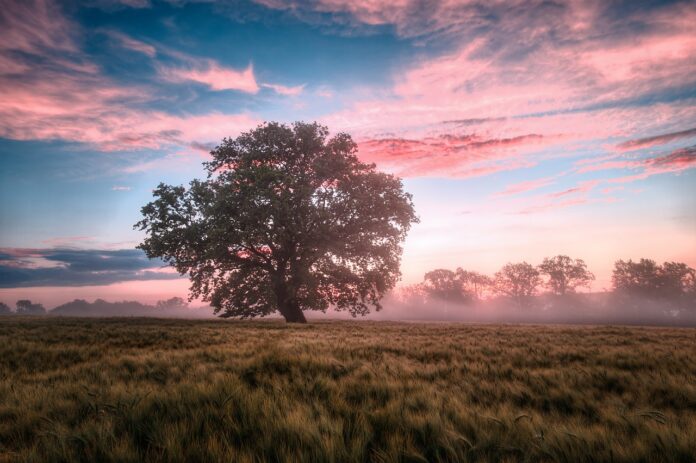Nature is full of wonders and surprises that continue to amaze us. From the highest waves to the smallest creatures, the natural world is a testament to the incredible diversity and complexity of life on Earth. Here are some fascinating facts about nature.
Interesting Facts about Nature:
- World’s Largest Wave: The largest wave ever recorded was 85 meters high and occurred in 1971 near the island of Ishigaki in Japan.
- Tardigrades’ Resilience: Officially, tardigrades are considered the most resilient creatures on the planet. These animals can almost completely control their bodies, such as slowing their metabolism by 10,000 times. They can survive temperatures as low as -193°C and can withstand radiation doses 1,000 times stronger than what is lethal to humans.
- Oceans’ Water Volume: Earth’s oceans contain 1,367,000,000 km³ of seawater. The Pacific Ocean holds 46% of all the water on Earth, followed by the Atlantic Ocean with about 23.9%, the Indian Ocean with approximately 20.3%, and the Arctic Ocean with 3.7%.
- Ecosystem Interdependence: The Earth’s ecosystem is incredibly complex and fascinating, yet very fragile. All elements of nature are interconnected. For example, deforestation can lead to the disappearance of animals living in that forest, causing more significant global problems.
- Auroras: The Northern Lights, or auroras, are one of the most beautiful natural phenomena. They occur when atoms in the upper atmosphere are excited by particles from the sun. Nitrogen atoms glow red and blue, while oxygen atoms glow green.
- Human Microbiome: Our bodies host bacteria that collectively weigh nearly 2 kilograms.
- Viruses’ Anomaly: In nature, viruses are an anomaly. They seem neither alive nor dead and cannot reproduce independently. However, if a virus enters a suitable host cell, it can reproduce.
- Earth’s Core Pressure: Scientists have proven that the pressure at Earth’s core is extremely high, around 3.7 million atmospheres (375 GPa).
- Largest Iceberg: The largest recorded iceberg by area was larger than present-day Belgium, measuring 30,720 km², and was observed in 1956.
- DNA as Information Storage: DNA is currently considered the most capacious information storage medium. One gram of DNA can hold approximately 700 terabytes of data, far exceeding any known hard drive’s capacity.
- Coldest Place on Earth: East Antarctica is the coldest place on our planet, with a record low temperature of -90°C.
- Brazil’s Biodiversity: Brazil is one of the richest countries in terms of nature, hosting about 30% of the world’s tropical forests.
- Baobab Trees: The Baobab tree, native to Africa, can store up to 120,000 liters of water in its trunk, enabling it to survive in extremely dry conditions.
- Great Barrier Reef: The Great Barrier Reef in Australia is the largest living structure on Earth, stretching over 2,300 kilometers and visible from space.
- Mount Everest’s Growth: Mount Everest, the highest point on Earth, grows about 4 millimeters taller every year due to geological activity.
- Jellyfish Immortality: The Turritopsis dohrnii jellyfish is known as the “immortal jellyfish” because it can revert to its juvenile form after reaching adulthood, potentially giving it an indefinite lifespan.
- Lightning Frequency: Approximately 8.6 million lightning strikes occur on Earth every day, illuminating the skies with their intense electrical discharges.
- Tree Communication: Trees can communicate with each other through a network of fungi called mycorrhizal networks, often referred to as the “Wood Wide Web.”
- Deepest Point on Earth: The Mariana Trench, located in the western Pacific Ocean, is the deepest point on Earth, plunging to a depth of about 36,000 feet (10,973 meters).
- Giant Sequoias’ Longevity: Giant Sequoias, some of the largest trees on Earth, can live for over 3,000 years, making them some of the oldest living organisms.
- Migratory Monarch Butterflies: Monarch butterflies travel up to 3,000 miles during their migration from North America to central Mexico, one of the longest migrations in the insect world.
- Unique Platypus Features: The platypus is a unique mammal that lays eggs, has a duck-like bill, and uses electroreception to locate prey underwater.
- Earth’s Water Composition: Only about 2.5% of the Earth’s water is freshwater, and less than 1% of that is accessible for human use, highlighting the importance of water conservation.
- Bamboo Growth Rate: Bamboo is one of the fastest-growing plants in the world, with some species growing up to 91 centimeters (35 inches) in a single day.
